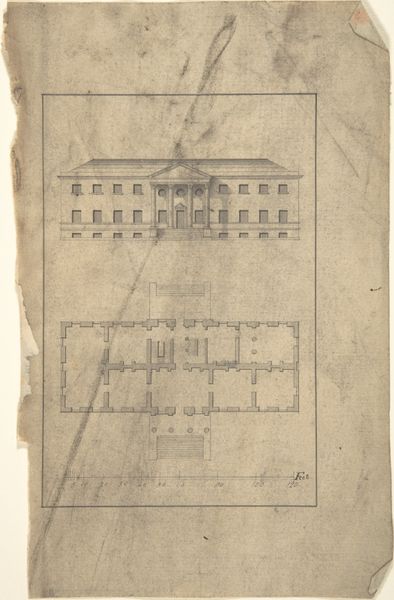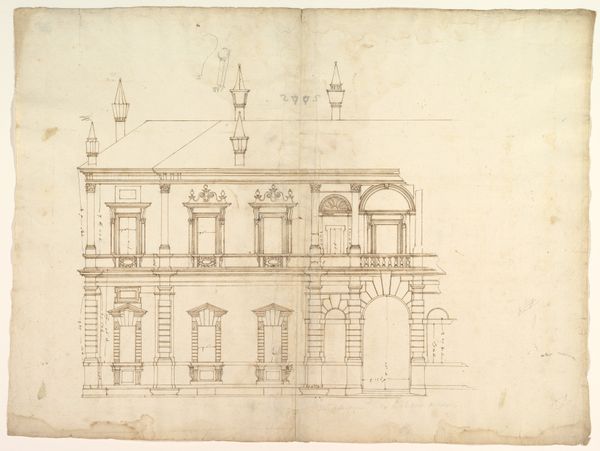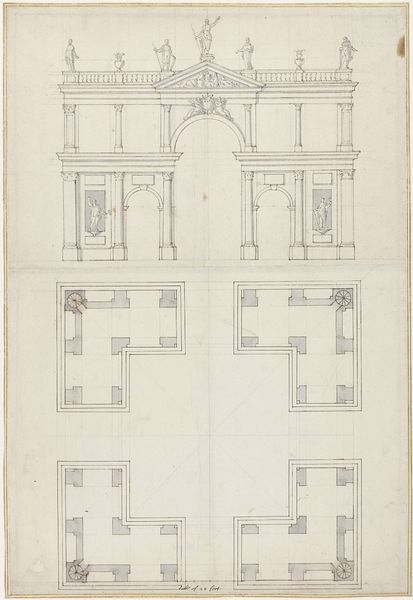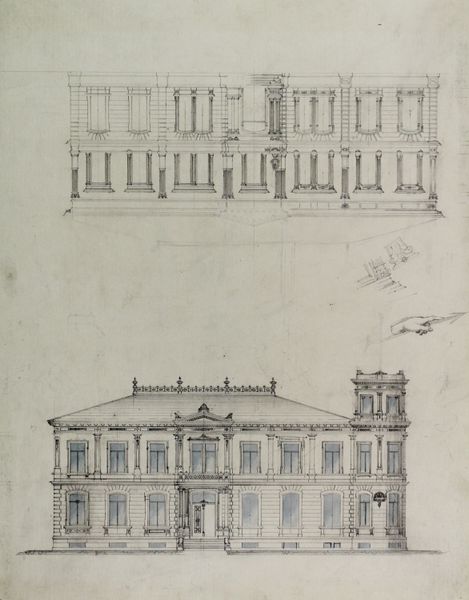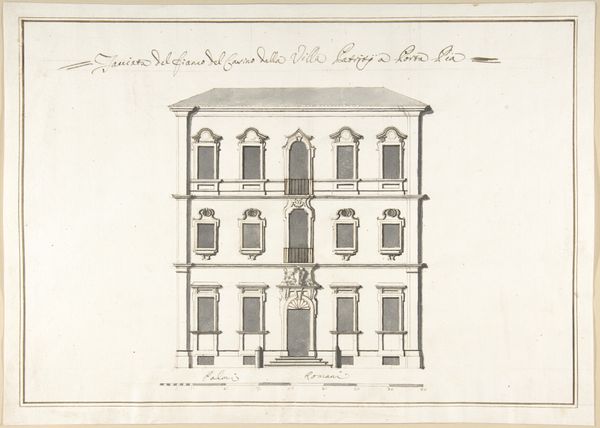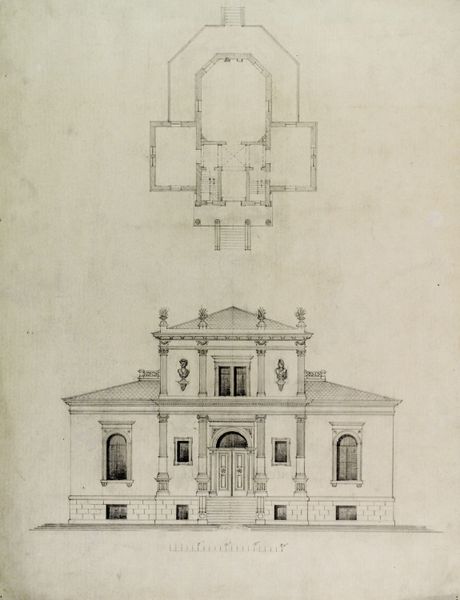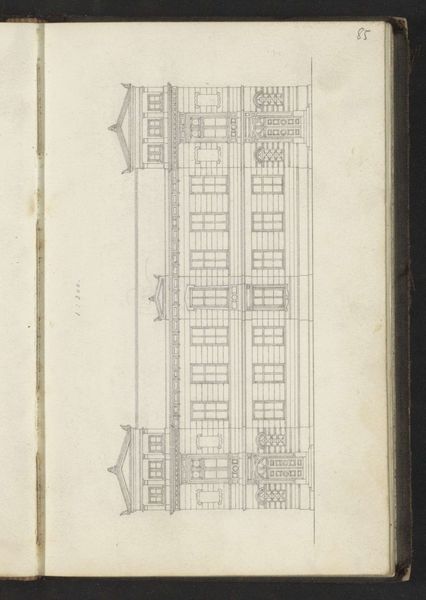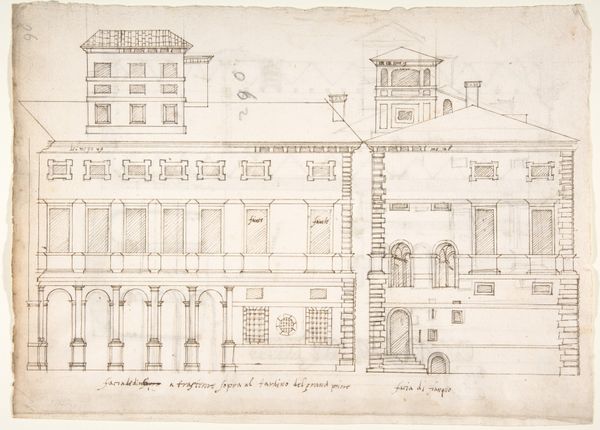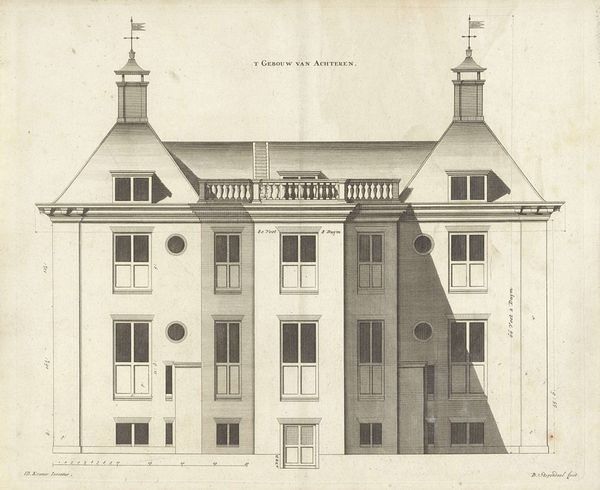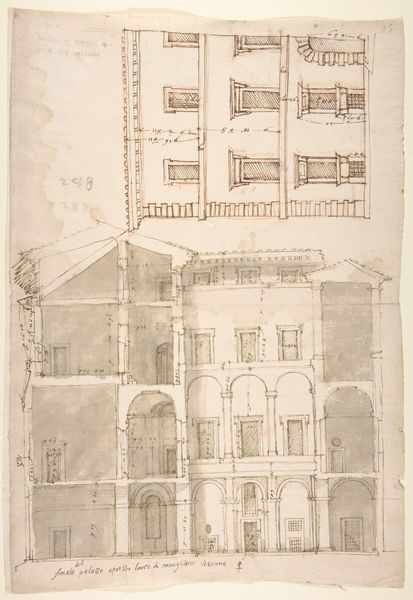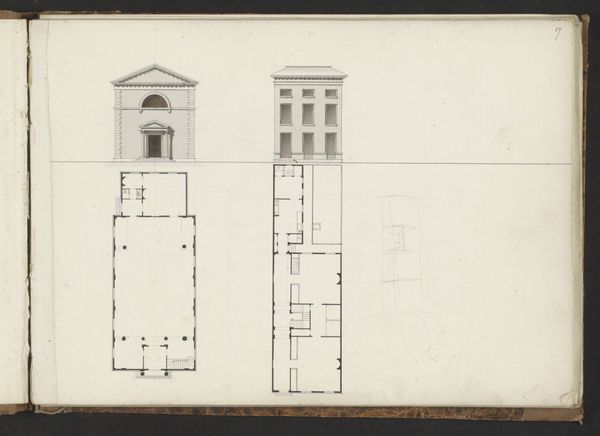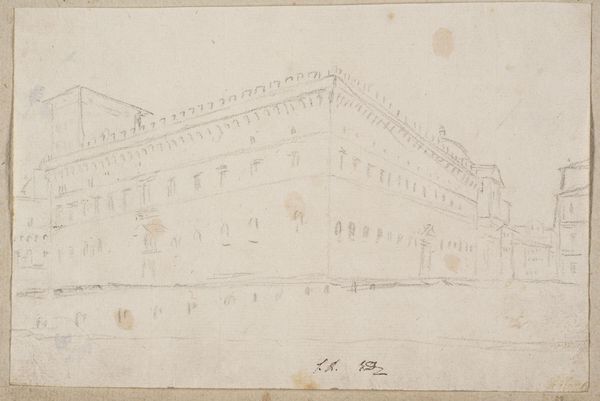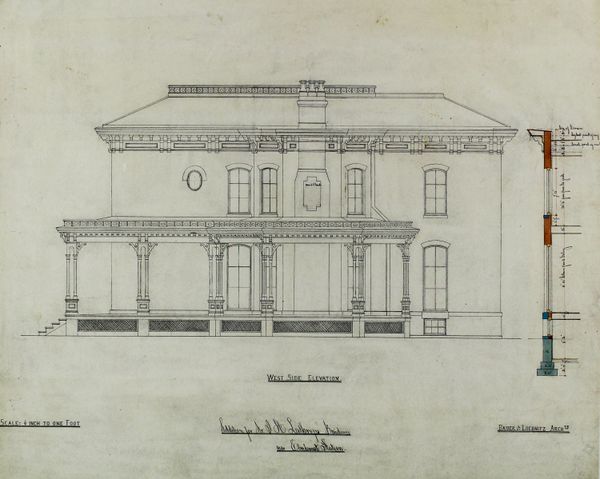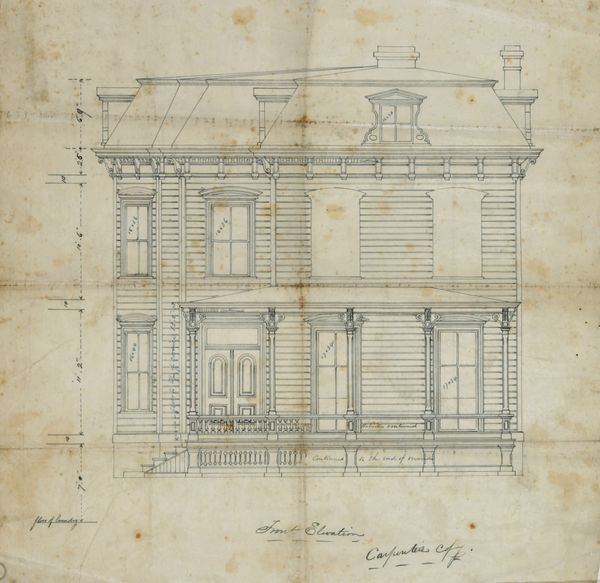
drawing, pencil, architecture
#
architectural sketch
#
drawing
#
neoclacissism
#
aged paper
#
toned paper
#
incomplete sketchy
#
hand drawn type
#
landscape
#
fading type
#
geometric
#
pencil
#
stylized text
#
architectural drawing
#
architecture drawing
#
watercolor
#
architecture
Copyright: Public Domain: Artvee
Editor: We're looking at "Elevation and plan for interior of large house," a drawing in pencil and watercolor by John Trumbull, dating from around 1790 to 1794. It's delicate, and feels incomplete, like a fleeting vision. I'm curious, what's your take on this piece? Curator: Well, what interests me here is the drawing’s status as a document of labor. Consider the materials: pencil and watercolor on what appears to be aged, perhaps toned, paper. Each mark represents time and effort. This wasn’t simply *inspired*, it was *made*. It represents the work necessary in imagining and projecting elite social life in architectural form. How do you see the social implications of that circular staircase? Editor: That's interesting... I hadn’t thought about it in terms of labor itself. I guess I was focusing on the aesthetic. The staircase is striking; almost a baroque element within a neoclassical framework. Curator: Precisely! It becomes an emblem, not just of movement through space, but of the specific class aspirations involved in its construction. The hand-drawn lettering and the sketchy nature point to a kind of artisanal intellectual labor, quite different from today’s CAD drawings, wouldn’t you agree? What do these subtle material qualities say about the hierarchies implicit in its creation? Editor: Absolutely. It humanizes the process in a way that digital renderings don’t. This was a craft, carefully considered. I now see it as less fleeting, more a concrete expression of labor. Curator: And an expression of power, inextricably linked. This is not just paper, pencil, and watercolor; it’s about access, skill, and the architectural dreams of a privileged class expressed through a specific material language. Editor: I never considered architecture in this way. This conversation really changed how I view drawings as an expression of more than just design!
Comments
No comments
Be the first to comment and join the conversation on the ultimate creative platform.
